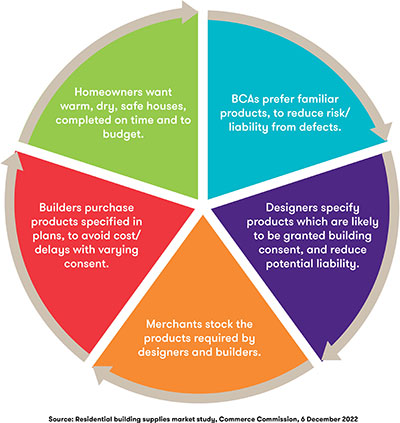-
Business valuations
We offer expert valuation advice in transactions, regulatory and administrative matters, and matters subject to dispute – valuing businesses, shares and intangible assets in a wide range of industries.
-
Capital markets
You need corporate finance specialists experienced in international capital markets on your side if you’re buying or selling financial securities.
-
Complex and international services
Our experience of multi-jurisdictional insolvencies coupled with our international reputation allows us to deliver the best possible outcome for all stakeholders.
-
Corporate insolvency
Our corporate investigation and recovery teams can help you manage insolvency situations and facilitate the best outcome.
-
Debt advisory
An optimal funding structure for your organisation presents unprecedented opportunities, but achieving this can be difficult without a trusted advisor.
-
Expert witness
Our expert witnesses analyse, interpret, summarise and present complex financial and business-related issues which are understandable and properly supported.
-
Financial models
A sound financial model will help you understand the impact of your decisions before you make them. Talk to us about our user-friendly models.
-
Forensic and investigation services
We provide investigative accounting and litigation support services for commercial, matrimonial, criminal, business valuation and insurance disputes.
-
Independent business review
Is your business viable? Will it remain viable in the future? A thorough independent business review can help your organisation answer these fundamental questions.
-
IT forensics
Effective ESI analysis is integral to the success of your business. Our IT forensics experts have the technical expertise to identify, preserve and interrogate electronic data.
-
Mergers and acquisitions
Grant Thornton provides strategic and execution support for mergers, acquisitions, sales and fundraising.
-
Raising finance
Raising finance - funders value partners who can deliver a robust financial model, a sound business strategy and rigorous planning. We can guide you through the challenges that these transactions can pose and help you build a foundation for long term success once the deal is done.
-
Relationship property services
Grant Thornton offers high quality independent advice on the many financial issues associated with relationship property from considering an individual financial issue to all aspects of a complex settlement.
-
Restructuring and turnaround
Grant Thornton’s restructuring and turnaround service capabilities include cash flow, liquidity management and forecasting; crisis and interim management; financial advisory services to companies and parties in transition and distress
-
Transaction advisory
Our depth of market knowledge will steer you through the transaction process. Grant Thornton’s dynamic teams offer range of financial, commercial and operational expertise.
-
Corporate tax
Grant Thornton can identify tax issues, risks and opportunities in your organisation and implement strategies to improve your bottom line.
-
Employment tax
Grant Thornton’s advisers can help you with PAYE (payroll tax), Kiwisaver, fringe benefits tax (FBT), student loans, global mobility services, international tax
-
Global mobility services
Our team can help expatriates and their employers deal with tax and employment matters both in New Zealand and overseas. With the correct planning advice, employee allowances and benefits may be structured to avoid double taxation and achieve tax savings.
-
GST
GST has the potential to become a minefield and can be expensive when it goes wrong. Our technical knowledge can help you minimise the negative impact of GST
-
International tax
International tax rules are undergoing their biggest change in a generation. Tax authorities around the world are increasingly vigilant, especially when it comes to global operations.
-
Research and Development
R&D tax incentives are often underused and misunderstood – is your business maximising opportunities for making claims?
-
Tax compliance
Our advisers help clients manage the critical issue of compliance across accountancy regulations, corporation law and tax. We also offer business and wealth advisory services, which means we can provide a seamless and tax-effective offering to our clients.
-
Transfer pricing
Tax authorities are demanding transparency in international arrangements. We businesses comply with regulations and use transfer pricing as a strategic planning tool.
-
Audit methodology
Our five step audit methodology offers a high quality service wherever you are in the world and includes planning, risk assessment, testing internal controls, substantive testing, and concluding and reporting
-
Audit technology
We apply our audit methodology with an integrated set of software tools known as the Voyager suite. Our technology has been developed to produce quality audits that are effective and efficient.
-
Financial reporting advisory
Our financial reporting advisers have the expertise to help you deal with the constantly evolving regulatory environment.
-
Business architecture
Our business architects help businesses with disruptive conditions, business expansion and competitive challenges; the deployment of your strategy is critical to success.
-
Cloud services
Our team is led by cloud business experts who tailor services to the needs of your organisation, from strategy and implementation to ongoing services assurance.
-
Internal audit
Our internal audits deliver independent assurance over key controls within your riskiest processes, proving what works and what doesn’t and recommending improvements.
-
IT advisory
Our hands on product experience, extensive functional knowledge and industry insights help clients solve complex IT and technology issues
-
IT privacy and security
IT privacy and security should support your business strategy. Our pragmatic approach focuses on reducing cyber security risks specific to your organisation
-
Organisational & cultural change
The key to sustainable and future growth is a unified organisation operating within a strong cultural context, where transparency and communication are the priority for Kaimahi, and where visible leadership means walking the talk – but where does that journey begin?
-
Payroll assurance
Our specialist payroll assurance team can conduct a review of your payroll system configuration and processes, and then help you and your team to implement any necessary recalculations.
-
PCI DSS
Our information security specialists are approved Qualified Security Assessors (QSAs) that have been qualified by the PCI Security Standards Council to independently assess merchants and service providers.
-
Process improvement
As your organisation grows in size and complexity, processes that were once enabling often become cumbersome and inefficient. To maintain growth, your business must remain flexible, agile and profitable
-
Procurement/supply chain
Procurement and supply chain inputs will often dominate your balance sheet and constantly evolve for organisations to remain competitive and meet changing customer requirements
-
Project assurance
Major programmes and projects expose you to significant financial and reputational risk throughout their life cycle. Don’t let these risks become a reality.
-
Risk management
We understand that growing companies need to establish robust internal controls, and use information technology to effectively mitigate risk.
-
Robotic process automation (RPA)
RPA is emerging as the most sophisticated form of automation used to help businesses become more agile and remain competitive in the face of today’s ongoing digital disruption.

A vicious cycle caused by consenting, liability and delays
- The building regulatory system favours specific familiar brands. Plasterboard is the most well-known example, where GIB is used by 95% of the market. ComCom also considered ready-mix concrete and structural timber.
- Merchants may be rewarded with rebates for buying large quantities of familiar products. This keeps the price of these products down for the merchants, so it’s harder for new products to get a foothold in the local market.
- Retailers often have leases and covenants that keep competitors from setting up nearby, which has the potential to reduce competition.
Will this report actually change anything?
This report isn’t ground-breaking, but at least the problem is now set out in black and white. That’s helpful, because stakeholders can now engage with the report, discuss it with suppliers and merchants, and think about how the problem is impacting their business.
But it won’t be easy to increase competition. We have a small and isolated market with low variety, which reduces competition. This is an issue that MBIE discussed in a 2016 paper which noted “competition is weak in New Zealand” because of our distance from major markets and lack of scale. There’s very little we can do about that.
We could remove the quantity rebates for manufacturers, and it looks as though this will happen. But it seems highly likely the rebates will be replaced with volume discounts, so will it make a genuine difference? Everyone in the industry wants to cut down the risks of time delays and cost overruns. If the old favourites like GIB are still cheaper, and they’re still consented more quickly, the industry will stick with them.
We know there are competitor products that meet the stated standards for construction, but nobody wants to stick their neck out and use these unfamiliar brands. Nobody wants to increase their odds of consenting delays, costlier materials and unhappy clients. Particularly at a time when the construction industry is facing an array of other headwinds, including a recession looming on the horizon in 2023.
There’s one major player who could shift the entire market
Despite this report saying we need more competition, and making some useful recommendations, there’s really only one player in our construction market that can actually change our entrenched behaviour.
Kāinga Ora is our biggest developer and the construction industry’s largest client by some magnitude. It has big budgets, it can fast-track consenting on its projects, and it won’t be slowed down by a recession. Because it’s such a powerful force in the industry, decisions made by Kāinga Ora reverberate through the whole sector. Once its projects are using alternatives, that will empower smaller suppliers to show what they can do. With a three-year supply arrangement to Kāinga Ora, for instance, any business would rise to the occasion to ensure they could supply their new biggest client.
Earlier this year Kāinga Ora set up a plasterboard taskforce, which named four GIB alternatives that can be used: Elephant Board, USG Boral, ProRoc and SaveBOARD. Kāinga Ora is also compliance testing for a Thai product, to help “wean itself off its dependence” on GIB. These are excellent first steps, but if the Government wants to see change in the industry, it must support Kāinga Ora to do more, and do it faster.
A few quick wins would help kick-start the change
Among the recommendations made in the report, most require the Government or a council to ‘develop’, ‘investigate’, ‘explore’, ‘consider’ or ‘establish’, all of which typically take years. But a couple of ideas stood out as potentially quicker wins, including expanding the range of acceptable product certification schemes and increasing flexibility in the MultiProof scheme.
If these can go ahead in 2023, along with removing rebates and a commitment by Kāinga Ora to embracing alternative brands, it’s possible we could see a genuine shift in the market by this time next year.






